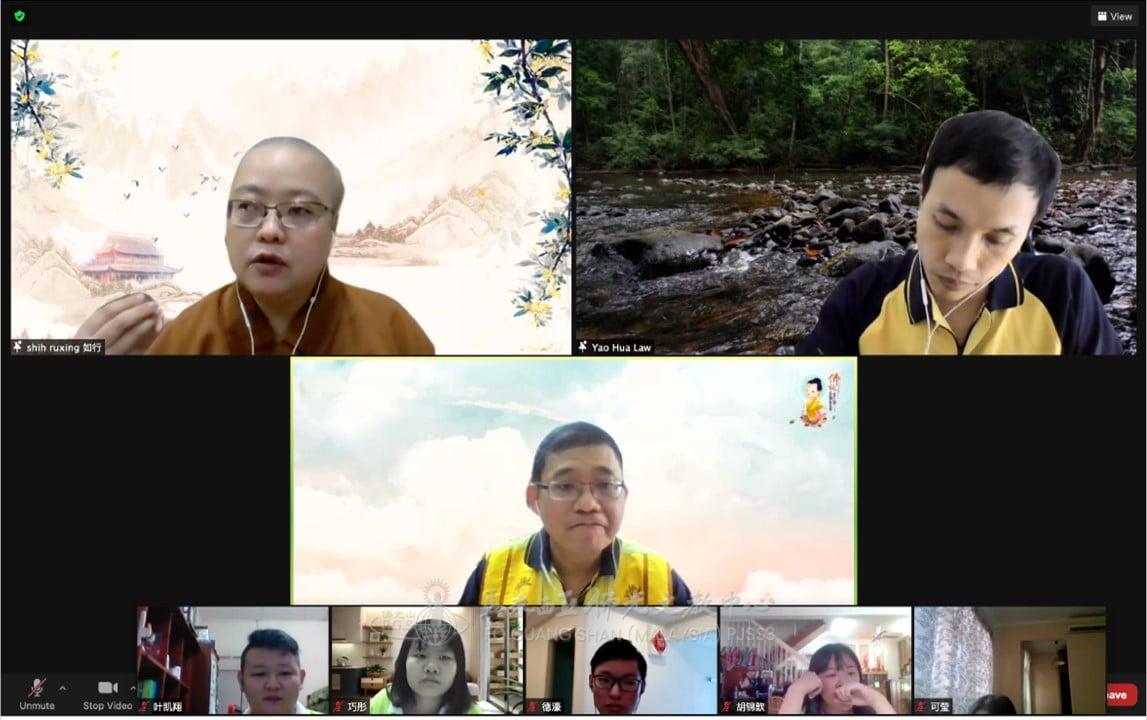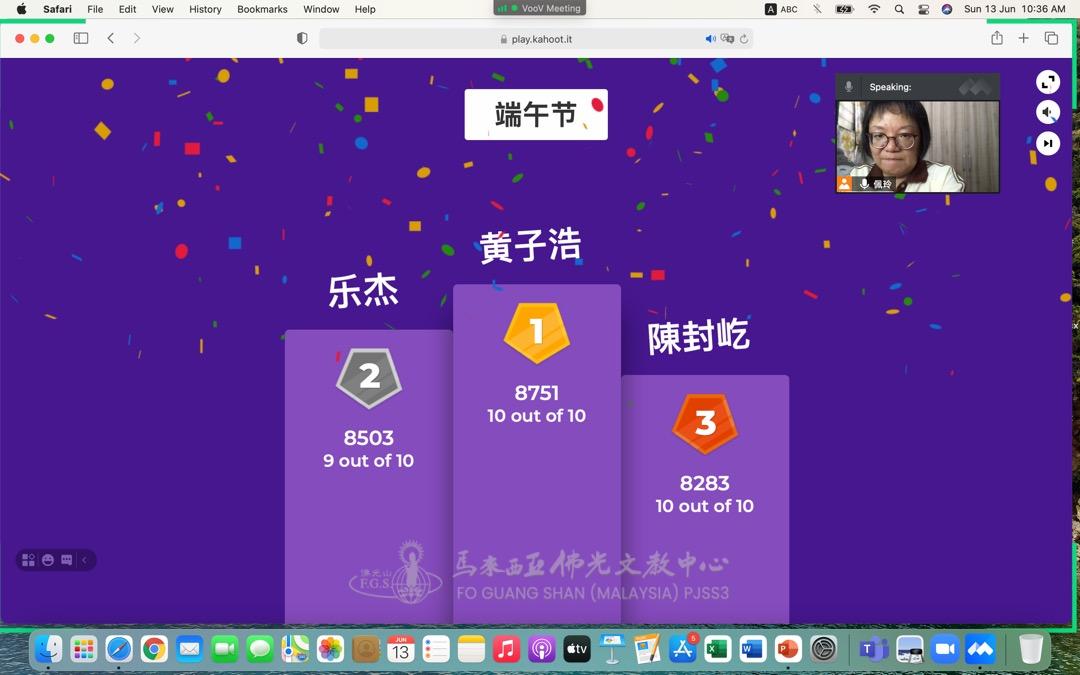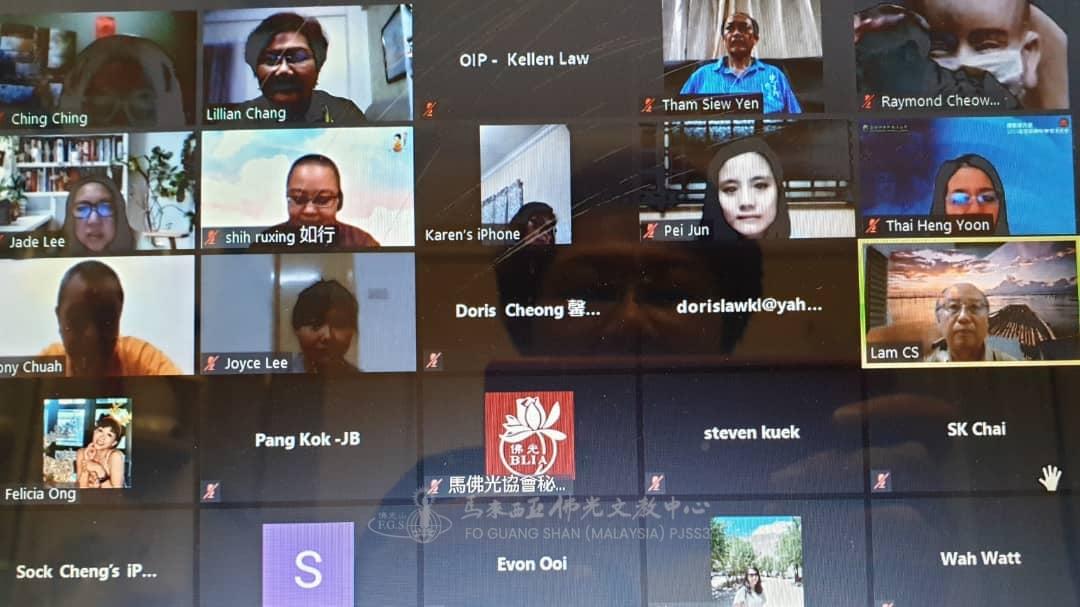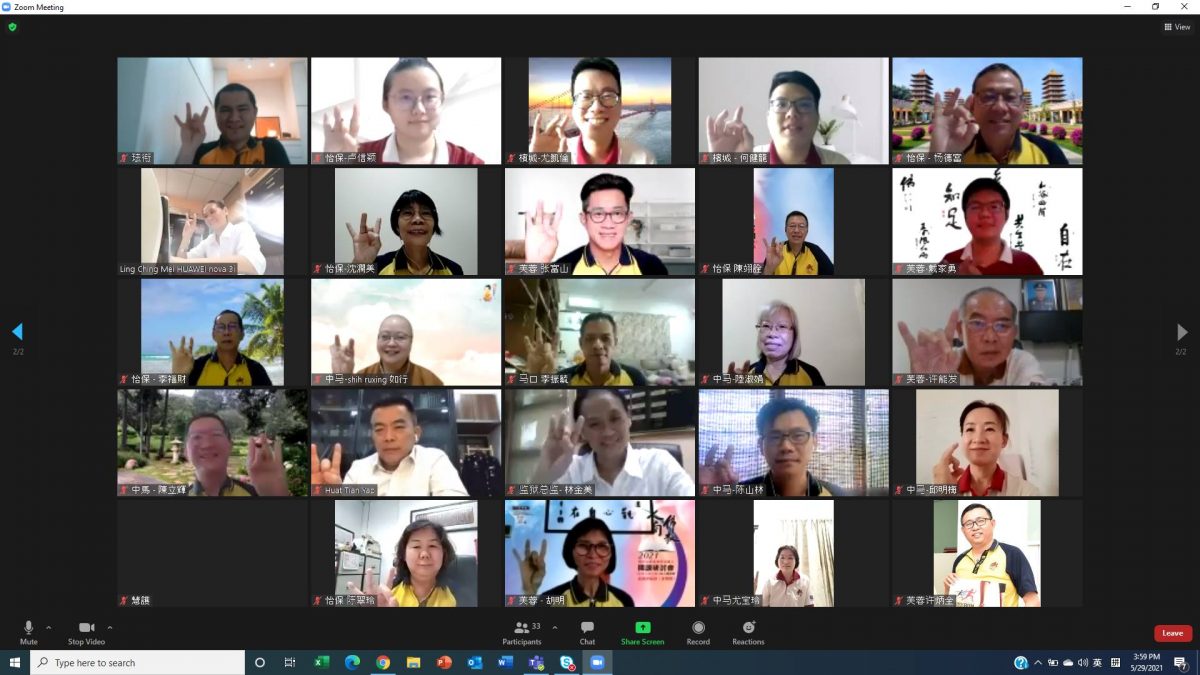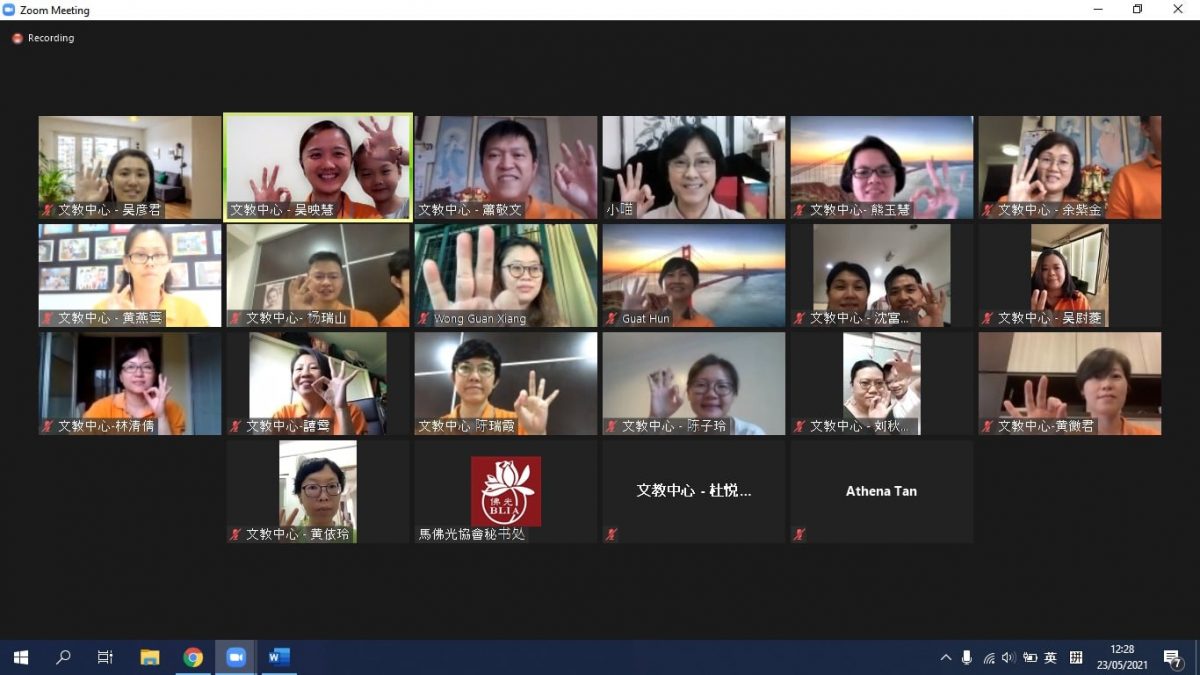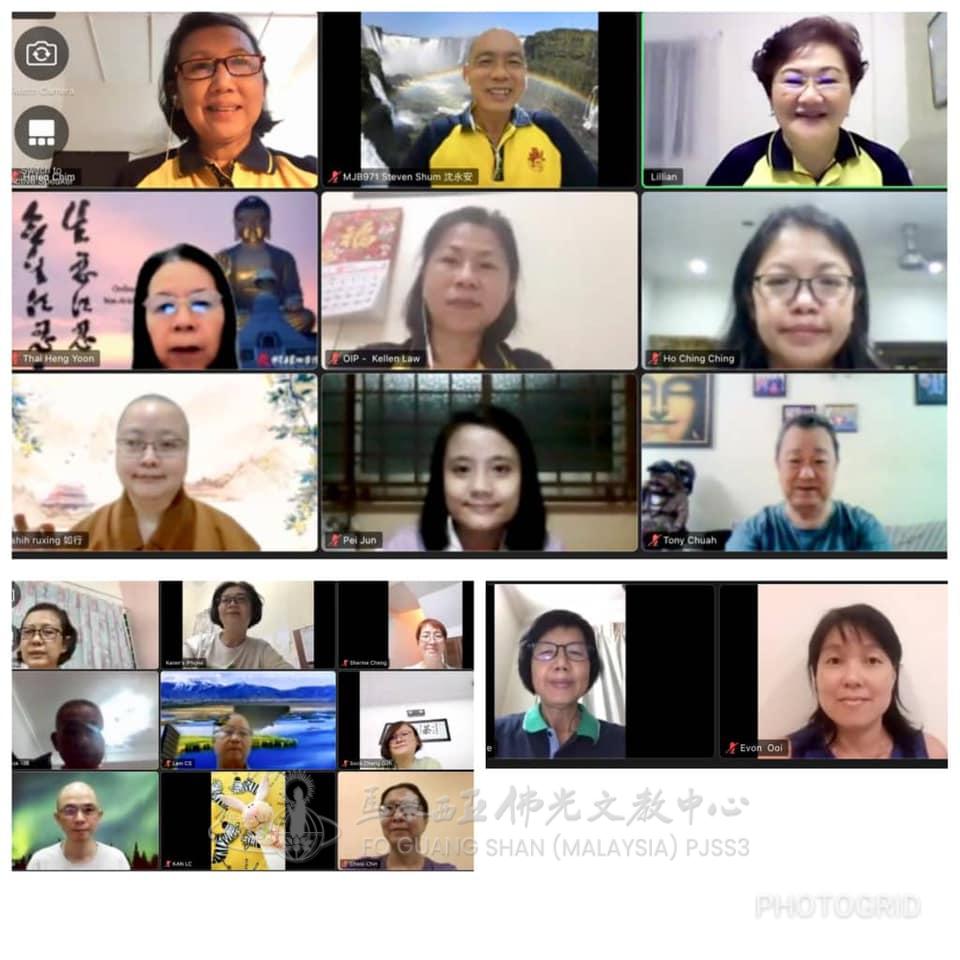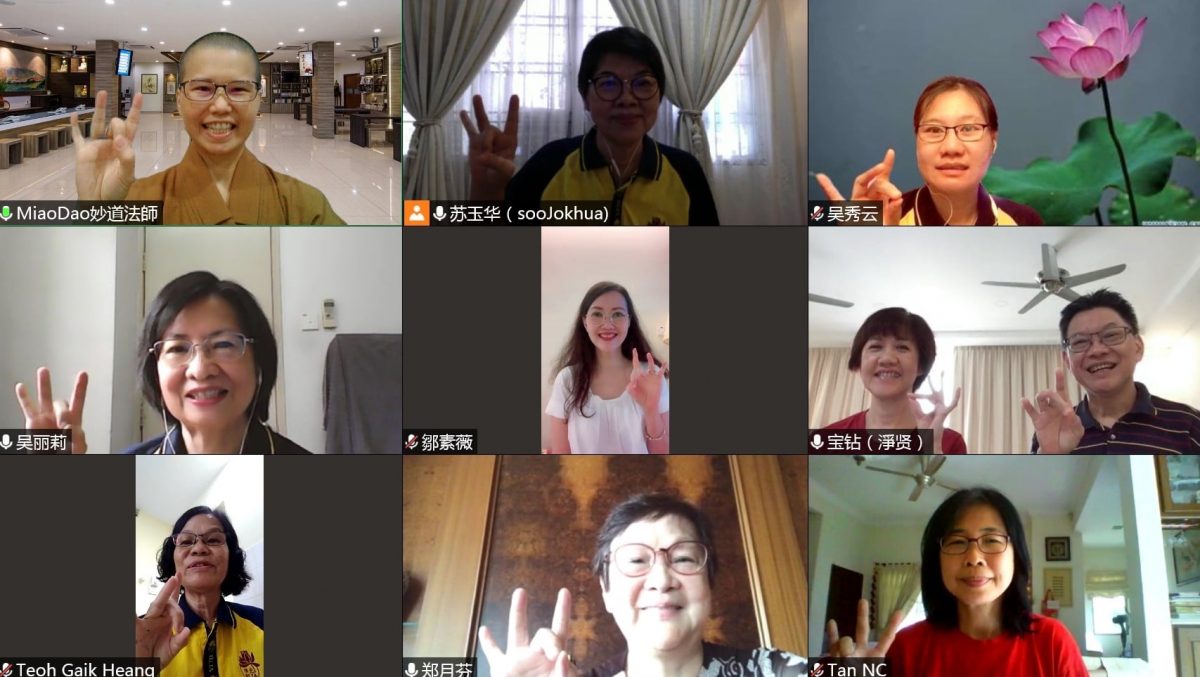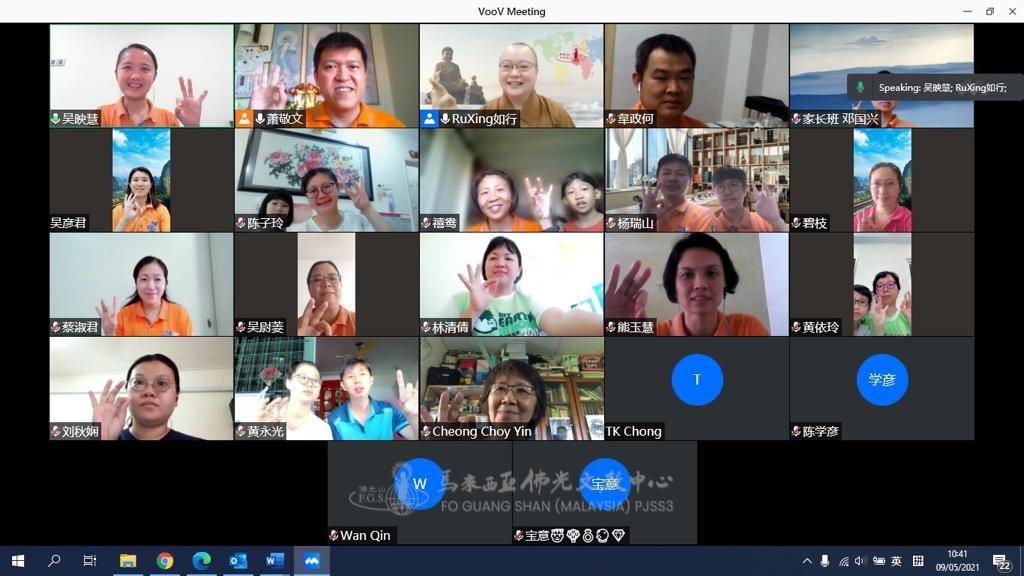07/06/2021 – “Joyful Dharma” Reading Club Report
Topic: Buddha-dharma: Pure & Simple – Law of Cause and Effect Across the Three Time Periods
A total of 27 participants attended this week’s reading session facilitated by Elder Advisor Sister Lillian.
According to Venerable Master Hsing Yun, causes and effects stretch across the span of three time periods; past, present and future, each affecting the other and no one can escape their past debts, no matter how reputable or ethical they may be. Master quoted that even Maudgalyayana, who has supernatural powers, and the Buddha, who is an awakened being, have to go through their karmic retributions.
To further enlighten the class on the understanding of karma, Venerable Ru Xing gave a description of the four attributes of karma:
(1) Karma determines results of what we do.
Different suffering and happiness are caused by different karma. As Buddhist, one must establish the right view to understand without the slightest confusion about karma, so as not to be blinded by the appearance of suffering and happiness.
(2) Karma grows vastly with our mind.
A small cause of good or evil can, by enlargement or continuation of the mind, lead to a large result of suffering or happiness. Eg, a drop of water can create an ocean; a small spark of fire can burn the whole forest. This explain that the relationship between cause and effect cannot be equated; a small act can create a great karma.
(3) No retribution for unmade karma.
If we have not created any karma, there is no retribution.
(4) Karma that has been created will not disappear.
Literally, this means if we do not do anything, whatever good and bad karma that has been created will not disappear, even after a hundred kalpas. However, by understanding the Buddha’s teaching of impermanence, if one perform good deeds and do repentance, we can cleanse our offenses and transgressions and improve our life.
From the discussions that follow, Venerable Ru Xing concur with one of our dharma brothers that we can look at karma with positive and neutral views. Taking the current pandemic as an example of collective karma, by understanding impermanence, we know that this pandemic will cease one day. However, at this moment, we can see that many people are suffering. If we can take this as an opportunity for us to do more good deeds and collectively cultivate good thoughts and transfer merit for a better world, we can transform and create a better life for our future.
On another question from one reader whether one suffers physical pains or sickness in this life is due to karma created in the past life, Venerable explained it is not necessary so. It could be due to the current lifestyle one is living now, eg. not eating or sleeping well, stressful working life, or not taking good care of one’s health, these are present causes that lead to present effects. But again, Venerable reiterated that if one has created the karma, one will have to face the consequences with repentance or do some other good deeds. We should not rely on supernatural powers to eradicate our past actions. From the interesting stories shared by Venerable and some partipants, everyone agree with Master’s perspective that, “One reaps what one sows”. While a person may live without faith, he or she must not live without the belief in cause and effect.
Before the class ended, every partipant shared a piece of their thoughts or reflections on today’s article and in closing, Venerable Ru Xing imparted some words of wisdom for us to take back:
(1) if we have unwholesome thoughts that has not been put into actions, use self-reproach as repentance to clear this karma,
(2) if somehow we have acted on it, we can approach the monastics or Bodhisattvas to confess whatever deeds we had done in the past and purify our karma and,
(3) do repentance diligently and specifically for one, three or five years, example chanting repentance sutras like Avatamsaka Sutra, 88 Buddha Repentance Sutra, Ksitigarbha Bodhisattva Sutra, etc. Notably, these repentance services not only purify our karma in the present life but also offences we have committed in the past many, many life times.
In conclusion, understanding causes and effects can inspire one with positivity and to be grateful for all that we have in this present life. The session ended with “Transference of Merit” and may all beings be free from suffering and live a peaceful life. Sadhu! Sadhu! Sadhu!
